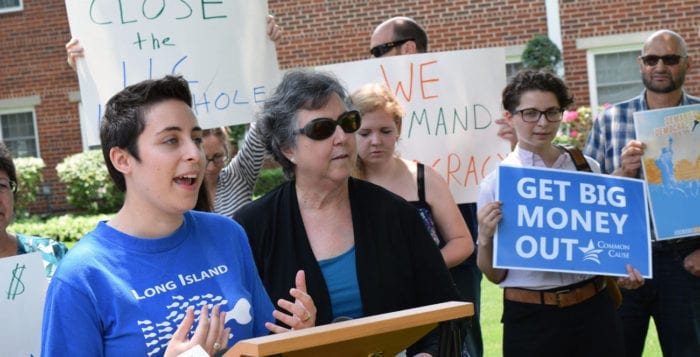By Linda Toga
The Facts: My father died last year and I was issued letters testamentary by the Surrogate’s Court. When going through my father’s desk, I found a bank statement dated June, 1999, for a savings account I did not know existed. The balance in the account in 1999 was nearly $5,000. Unfortunately, the bank that held the account no longer exists.
The Question: How can I find out if my father removed the money from the account prior to his death?
The Answer: If the statement you found had been dated within the last five (5) years, you could likely find out which bank took over the assets of your father’s bank and contact them to see if the account still exists. However, in New York State, if a bank account is dormant for an extended period of time, after five years, the bank can hand over all of the money in the account to the State Comptroller’s Office.
In other words, after the requisite waiting period, the account will escheat to the state. While bank accounts escheat to the state after five (5) years, other types of assets and property such as insurance policies escheat after only three (3) years and checks issued by the state escheat after only one (1) year.
If you believe the money in your father’s account was escheated to the state, you can obtain information by calling the New York State Comptroller’s Office, which oversees the New York Office of Unclaimed Funds. You can also go online to www.osc.state.ny.us/ouf/ and search under your father’s name and address for any of his property that may have escheated to the state.
If your father ever lived outside New York, you may also want to search on the sites maintained by the offices of unclaimed funds in other states to be sure you don’t miss anything.
While you are searching for assets belonging to your father that may have escheated to the state, you should also search on your own name and address. You may be pleasantly surprised to find that a rent or utility deposit you forgot you even made or dividends on stocks that you once owned have escheated to the state and are available to you. There is no statute of limitations on unclaimed property, and online searches are free, so you have nothing to lose.
While it is highly unlikely that you will find you are entitled $6.1 million like the largest unclaimed property recipient but, you never know!
If you are lucky enough to find that the balance in your father’s account did, in fact, escheat to the state, you can request that the funds be sent to you. To do so, you must file a claim and provide sufficient information to establish your entitlement to the funds. Since you are the executrix of your father’s estate, you will be asked to provide your letters testamentary as well as documents establishing that your father was, in fact, the person named on the account. Any unclaimed funds that you collect as executrix should be considered as part of your father’s probate estate and distributed in accordance with the provisions in his will.
The process of recouping unclaimed property can be very frustrating because it takes quite some time. It is not unusual to be asked to resubmit paperwork previously provided or to provide documents that were not initially requested. However, being able to get your hands on “found” money is exciting and usually worth the effort.
Linda M. Toga, Esq. provides legal services in the areas of estate administration and planning, real estate and litigation from her East Setauket office.






